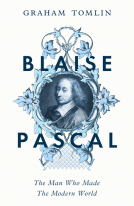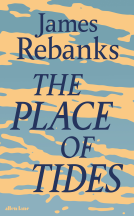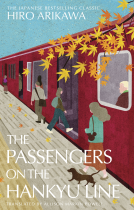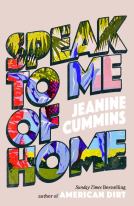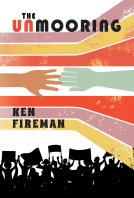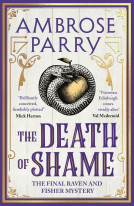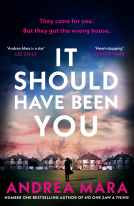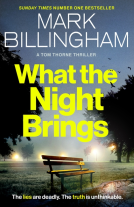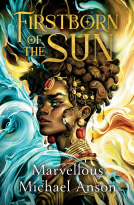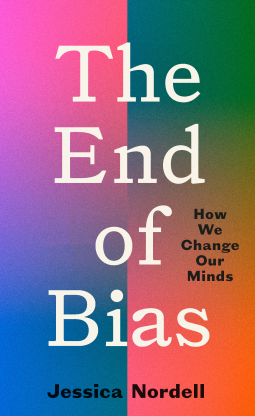
The End of Bias
How We Change Our Minds
by Jessica Nordell
This title was previously available on NetGalley and is now archived.
Send NetGalley books directly to your Kindle or Kindle app
1
To read on a Kindle or Kindle app, please add kindle@netgalley.com as an approved email address to receive files in your Amazon account. Click here for step-by-step instructions.
2
Also find your Kindle email address within your Amazon account, and enter it here.
Pub Date 23 Sep 2021 | Archive Date 11 Feb 2022
Granta Publications | Granta Books
Talking about this book? Use #TheEndofBias #NetGalley. More hashtag tips!
Description
Implicit bias affects us all, every day of our lives. But it can be overcome. Here's how we begin to change our minds.
Implicit bias leads us to discriminate on the basis of race, gender, age, body type and a host of other factors. It robs organizations of talent, science of breakthroughs, art of wisdom, politics of insight, individuals of their futures, and communities of justice.
But implicit bias is a problem that can be solved. For the past thirty years, scientists, psychologists, teachers and entrepreneurs have been coming up with ways to overcome our biases and end unconscious discrimination.
In this landmark book, Nordell meets the people and organisations whose discoveries are set to change the world, and examines how we might begin to eliminate the biases that have settled in our societies, and even in our own minds.
Advance Praise
‘Despite revolutions in our understanding of bias, we’re still much better at documenting the problem than solving it. When it comes to prevention and cure, Jessica Nordell’s powerful book is a breakthrough. With state-of-the-art science and gripping narratives, she reveals steps what individuals, groups, and institutions can take to fight prejudice’ Adam Grant, author of Think Again
'In an age of snap judgements and empty moralizing, The End of Bias is a salve and a lifeboat. Nordell accompanies her incredible depth of research with the kind of attention to nuance, self-examination, and genuine compassion that marks the difference between information and wisdom. This book will not just want to make you be a better person — it will convince you that others can be better too, all while patiently lighting the way forward’
Jenny Odell, New York Times-bestselling author of How To Do Nothing: Resisting the Attention Economy
Available Editions
| EDITION | Hardcover |
| ISBN | 9781846276774 |
| PRICE | £20.00 (GBP) |
Featured Reviews
A thought provoking read, 'The End of Bias' by Jessica Nordell, addresses the topics of unconscious bias and prejudice. Referencing a number of case studies where individuals have encountered bias, the author looks at methods to understand and counteract the bias.
Nordell also considers looks gender and race discrimination and its causes, both of which are often societal and perception-based. Interestingly, the author attempts to take a solution-orientated approach, and so provides numerous examples of interventions which were evidenced as reducing bias, along with the footnotes to backup this information.
Very researched, this book is written in a more conversational style which ensures that the book is accessible to all readers.
 Anne M, Reviewer
Anne M, Reviewer
This is a truly amazing book. Ms Nordell has achieved a great service getting these ideas down in a readable, entertaining, yet challenging way. I spent half the book saying “that’s what I think”, a quarter saying “wow I didn't know that” and a quarter is written down in my notebook. I also need to follow up on the comprehensive notes and references section, which clearly reflects the research which went into this book.
“Reducing individual bias won’t end disparities and societal inequities: these are the legacy of historical exclusion, unequal access, extractive economic policies, and other invidious structures built on corrupt foundations. Only large systemic changes - from the reinvention of public safety and prisons to broad economic repair - can address such gross and longstanding injustices.”
This is not a polemic, it is a fascinating look at how we form our prejudices without knowing we are doing it. Why do we reuse our towels in a hotel more when we are told other guests do it, than when we are are told it helps the environment? There is no point having a quota and employing more of the people you have historically shut out, if those people quickly leave because the atmosphere in your company is toxic and they are are not valued.
“…another recent study found that people who believed that gender discrimination was no longer a problem in their field rated a male employee as more competent than an identical female employee and recommended an 8 per cent higher salary.”
An excellent quote which sums up the way the author went about her study is “By constricting the makeup of who asks the questions, it shapes what questions are asked, compressing the scope of human knowledge.”
There is a story of a school which was looking at how they could help their young children overcome any innate or learned prejudice about boys and girls being different. Boys are strong and don’t cry, girls are pretty and wear pink etc. But when they looked back at tapes of the classroom interactions, they found it was the teachers who reinforced the bias as much as the kids. When they changed their methods completely to address the issues, a number of parents complained!
An excellent, stimulating book and I will follow up on some of the references. I was given a copy of this book by Netgalley in return for an honest review
 Jane H, Book Trade Professional
Jane H, Book Trade Professional
A really thought-provoking interesting read which I would recommend to anyone and everyone. I was lucky to get an advance electronic reading copy but this is something I will go and buy as a print edition too as there are so many interesting facts and references to go back and look at. A definite 'must-have'.
 Kristell T, Reviewer
Kristell T, Reviewer
An absolute must read!!! An eye opening narrated study which grips you and give you a lot of information in a splendidly written way. Each point is supported by a story which makes the boom more personal and relatable. In these trialling times, this book should be in every curriculum as a fundamental reading. I have already recommended it to everybody I know and will certainly have my children read it when they are older. There is not enough words in the dictionary to rave about this book!!!
 Ellie K, Reviewer
Ellie K, Reviewer
Thank you to Netgalley for an advanced copy of this in exchange for an honest review.
And, honestly...I loved it. In the conclusion, the author notes that she upon starting this book, she thought it would be a scientific approach: gathering sources, testing a conclusion. You can definitely see that, in the variety of references there are (which I really liked - I'll definitely be buying a physical copy upon publication, so that I can have the list for future.) However, in contrast (sorry to all the science academics who've written very funny papers - no shade on you, I promise!), it's written engagingly too, more like an essay or a longread magazine article, and makes sure to focus on the human aspect. I felt like the data and figures were well-balanced with this essential real-life, human aspect, together covering a side of the discourse that we don't see written about in mainstream culture as much as we should (or at least, that I haven't seen as much!)
It gave me hope, and also gave me pointers for where there's always more work to do.
Why do parents google “is my son gifted” more than twice as often as ‘is my daughter gifted?’ And why do they google ‘is my daughter overweight’ twice as often as they ask about sons, even when statistically more boys are obese than girls?
With many more examples like these, the author shows that we are all biased in subtle ways. And the bias often operates subconsciously through learned cultural expectations.
For example in Performance reviews, personality issues are raised for men in 2% of cases. For women it is 76%. And the character flaws of the women are the virtues cited as reasons for promoting men. Underlying these double standards are unspoken cultural expectations about how men and women “should” behave.
One of the things I particularly appreciated about this book is that it was solution orientated. More than half the book gave examples of interventions which were evidenced as reducing bias. And a further 25% of the book provided footnotes with the details of the evidence.
Reviewing interactions between Police and Black and Latino populations the author noted that there are often mental health issues impacting police officers. This led to programmes of mindfulness and re-humanising behaviours which had measurable impacts in driving down crime whilst simultaneously reducing arrests of Black and Latino people. In one programme, over a period of 6 years police use of force dropped by 40% whilst their policing remained as effective as previously.
Another set of solutions to bias involve ‘cognitive interventions,’ which enabled people to look for ‘situational’ explanations for behaviour, rather than attributing it to character flaws. In a school context this halved the numbers of black pupils being suspended. In the criminal justice system it led to a 13% reduction in recidivism amongst Black and Latino populations.
In further chapters the author looks at healthcare. We see that something as simple as a ‘checklist’ stopped doctors defaulting into biases, and it led to a 47% drop in death rates amongst those with blood clots.
The book contains so much information and analysis that it is impossible to do it justice by citing examples. It is an enjoyable and highly informative read, which leaves readers with the upbeat message that discrimination really can be fought and defeated.
These are honest comments based on an Advanced Review Copy of the text.
 A J G, Educator
A J G, Educator
This is an important book which contains the best scientific research on bias and prejudice framed in a readable accessible manner. Individual stories bring the themes to life and embed the learning. Having been involved in anti-mental health stigma work I recognise the difficult tightrope walk between making people aware of their prejudices to enable them to change them, and causing them to react defensively and make the situation worse. The authors own journey to recognise her privilege and biases and to work on these is well described. The author is American and the viewpoint is from the US, with their particular forms of embedded racism and sexism, but there is much to learn here for a UK audience.
I would certainly recommend this book widely.
 Emma R, Reviewer
Emma R, Reviewer
This is the book that all the people who acknowledge that some are disproportionately treated as a truth. It is an invaluable book that is well researched with relatable examples and empirically scenarios to allow us to apply to our own lives,
I was shocked at the things I was personally guilty of and am now routinely seeking the source of my presumptions.
When Allies can cut the canker off at the root we can gently guide those with more ingrained prejudices with insightful questions and correlation .
Will be sharing far and wide.
Every book I read and review starts off with the full 5 stars and this book ain't any different.
I usually read fiction but non-fiction is also cool and groovy, as long as it's not boring and doesn't use words that I've never even heard of before.
This book sounds really interesting and something I feel passionately about, so I'm hoping it'll be a high scorer, star-wise. I got a free copy in advance, thanks to NetGalley and I can't wait to get stuck into it!
The cover is simple but effective and I can't wait to get started on it when I've fished my Kindle out of it's drawer beside me... I hope it's fully charged up!
Nope, it's dead, so I'll plug it in and leave it to charge up a few percent so that I can open the book lol
There have been 14 mostly blank pages at the start of the book... is the author and/or publisher trying to add pages to the book to make it feel like it's more worth the price?
I'm loving this book so far... it's sooo different from my usual fiction and I'm really appreciating what the author is saying and it's making me realise just how good my life is in many ways compared to others - I've got a roof over my head, food in my belly and drinks available whenever I fancy quenching my thirst... there are so so many, even in rich countries like the UK, who don't have those luxuries and I admit I've been taking them for granted. Even healthcare is free at the point of use, unlike other countries in the world and all prescriptions cost the same. Hospital treatment is free, whether it's for a broken toe or a triple heart bypass (I don't even know what that is, but I bet it costs the NHS a pretty penny every time it's performed). I saw a Neurologist this morning and it was free 'cos I'm a UK-er born and bred, but there's no way I could afford it in America! That's without even considering those who live in poverty... they would be equally entitled to free healthcare, but when was the last time they had a drink of fresh water that they didn't have to beg for? When was the last time they replaced their toothbrush or even managed to afford a tube of toothpaste?
Back onto the topic of this book now though lol
I hope the author has got written permission to use all these big names, ads and music groups or they could get themselves into hot water!
Blimey Charlie! Where have the hours gone? It's taken the best part of 3 days to get this far, but other than the things I've mentioned already about using trademarks and stuff (which may have different usage rules to fiction, but I dunno about that, so I ain't knocking off a star), the days have disappeared into the ether and after I start reading I don't stop until I head to bed! It's rare to find a book like that for me, so the author should feel really proud of themselves for keeping me reading without even needing to go for a wee and my hot drinks have usually been left to get cold too, which is another sign of a good book.
I was wrong at the start of this review, thinking that the blank pages were a marketing thingybob... the text is pretty small and there are over 350 pages so maybe it was more of a gentle introduction to all these quality words throughout the rest of the book?
Just reached the conclusion and it may sound daft, but I'm starting to feel emotional about not having it to read and think about during the times that I'm asleep or doing other things online. It's seriously opened my eyes and made me think about how I can explore my own beliefs and biases and how I can adjust them to make me a better person amongst those who aren't like me. I thought I was open-minded and unjudgemental and that I was all for helping those who needed my support, but this book has made me realise that even though I do my best, I've still got a looong way to go to help others.
Just finished the book (with the exception of the notes ;-) lol) and I'm a changed person because of it... it's made me want to examine myself and my past and constantly challenge each thought - where has it come from, who introduced that thought and most importantly, why?
Readers who liked this book also liked:
Marvellous Michael Anson
General Fiction (Adult), Multicultural Interest, Sci Fi & Fantasy
